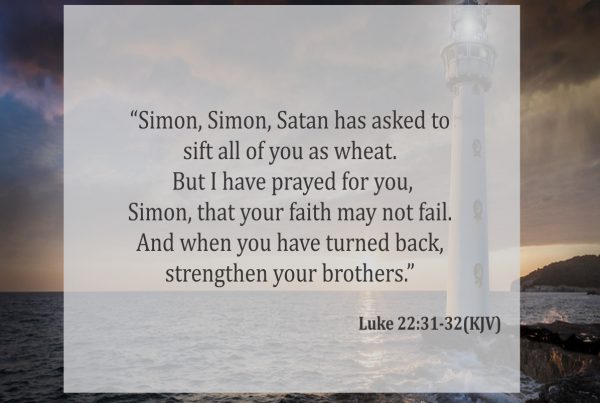‘T o flee or not to flee a pandemic?’ is a post that reminds me of the questions that witnesses are normally asked during cross-examinations. These are questions that are to have the witness give evidence that helps the questioner and the case. They are also to ask the witness about any evidence they gave earlier that the questioner thinks is not correct.
One similar event is captured in Luke’s account of the friendly contest between an expert in the law and Jesus. It is within this contest that lies “The Parable of the Good Samaritan” as retold below.
The Parable of the Good Samaritan
”25 On one occasion an expert in the law stood up to test Jesus. “Teacher,” he asked, “what must I do to inherit eternal life?”
26 “What is written in the Law?” he replied. “How do you read it?”
27 He answered, “‘Love the Lord your God with all your heart and with all your soul and with all your strength and with all your mind’; and, ‘Love your neighbor as yourself.’”
28 “You have answered correctly,” Jesus replied. “Do this and you will live.”
29 But he wanted to justify himself, so he asked Jesus, “And who is my neighbor?”30 In reply Jesus said: “A man was going down from Jerusalem to Jericho, when he was attacked by robbers. They stripped him of his clothes, beat him and went away, leaving him half dead. 31 A priest happened to be going down the same road, and when he saw the man, he passed by on the other side. 32 So too, a Levite, when he came to the place and saw him, passed by on the other side. 33 But a Samaritan, as he traveled, came where the man was; and when he saw him, he took pity on him. 34 He went to him and bandaged his wounds, pouring on oil and wine. Then he put the man on his own donkey, brought him to an inn and took care of him. 35 The next day he took out two denarii and gave them to the innkeeper. ‘Look after him,’ he said, ‘and when I return, I will reimburse you for any extra expense you may have.’
36 “Which of these three do you think was a neighbor to the man who fell into the hands of robbers?”
Luke 10:25-37New International Version (NIV)
37 The expert in the law replied, “The one who had mercy on him.”
Jesus told him, “Go and do likewise.”
The Expert who got more than he bargained for
Luke uses the Expert’s account to introduce “The Parable of the Good Samaritan”. This is not just any expert. He is one that has spent much of his life asking and answering questions on the law (Torah).
Thus, knowing that inheritance is not under the control of the recipient, he fires his first question. His choice of the term “inherit” betrays his intention. However, Jesus counters his question with a question. This forces the Expert to answer his question. And in his answer, he states two things that are necessary to inherit eternal life – loving God (Deuteronomy 6:5), and loving neighbor (Leviticus 19:18). Jesus compliments him for his answer.
The Expert, wanting to justify himself, fires his second question. Jesus answers his second question using a parable. He uses the Good Samaritan who had no grounds to have mercy on the injured Jew. But he does.
“The Samaritans were the product of the intermarriage between the Jews and the Gentiles. You could refer to them as being the step-brothers of the Jews. However, the Jews hated them. Thus, a Jew could only relate with and help a fellow Jew.”
To flee or not to flee a pandemic?
How did Christians before us respond to plagues?
In the second century, there broke out a plague between 165 and 180 AD. During that terrible Antonine plague, Christians cared for the sick and offered a spiritual model in which plagues were the product of a broken Creation in revolt against a loving God. Similarly, in the third century, a plague named Cyprian, afflicted the Roman Empire from 250 AD to 270 AD. This plague was named after a bishop who preached sermons that told Christians not to grieve for plague victims (who had gone to live in heaven), but to redouble their efforts in caring for the living. In unison, Bishop Dionysius of Alexandria testified that: “The plague did not discriminate between Christians and non-Christians, but its full impact fell on non-Christians”.
Much closer, in 1527 (sixteenth century), a deadly plague known as the bubonic plague hit the German university town of Wittenberg. Many citizens fled. However, Martin Luther refused calls to flee the city and protect himself. Instead, he and his pregnant wife stayed and ministered to the sick and the needy. This decision cost his daughter her life.
Martin Luther’s response
When one German pastor named Johann Hess wrote Luther asking how a pastor should behave when facing such a plague. Luther, in a pamphlet articulated: “We die at our posts. Christian doctors cannot abandon their hospitals, Christian governors cannot flee their districts, and Christian pastors cannot abandon their congregations. The plague does not dissolve our duties. It turns them to crosses, on which we must be prepared to die.”
“A good shepherd lays down his life for his sheep”, he added. He also said that Christians who trust God and minister directly to the affected and/or infected should not fear infection, for in the end, caring for the sick is like caring for Christ. Jesus said, “I was sick, and you cared for me” (Matthew 25:36). John wrote that Christ laid down his life for us, and we ought to lay down our lives for others (1 John 3:16). On the other hand, Luther warned against the over-confident who underestimated the seriousness of the plague and were frivolous toward God. He therefore advocated that: “we must never endanger others through our negligence or recklessness”.
Our response
Luke 10:25-37 holds the principle that Christians have employed to respond to similar pandemics (crises) throughout history. The habit of mercy (sacrificial care) has reappeared consistently through this time. Thus, Christians stayed put in their localities and ministered to the needy there – they did not flee.
To you who is facing this Corona crisis with a variety of feelings and serious questions, this may sound foolish. But a Christian, whether a leader or not, has the obligation to care for those in need both physically and spiritually. Christians are the hope of the world in any pandemic (crisis). And when doing so, you have to obey the quarantine orders and take the prescribed precautions geared towards containing the spread of Covid19.
Don’t forget to surround yourself with messages of faith and hope. They are the fuel you need right now.
Prayer
Lord God, speak to us through your Word and Spirit in these times. Help us rise to this opportunity to display your love in the service of our neighbours. In Jesus’ Name I pray. Amen.
Additional Resources





